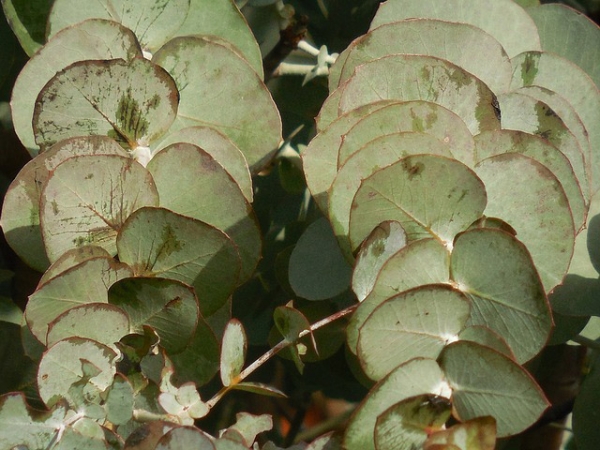Eucalyptus Essential Oil (EEO)
Eucalyptus globulus and Eucalyptus radiate
Known Uses
Eucalyptus globulus (also known as Tasmanian blue) is an antiseptic and an analgesic. Eucalyptus radiate is one of the most fragrant of all the Eucalyptus oil and has strong antibacterial, antiviral, and expectorant properties. It is often used in diffusers as well as topically for the flue, sinusitis, and bronchitis.
It is generally used as an analgesic, antiseptic, deodorant, expectorant, and to kill parasites. Has a stimulating effect on the nervous system, can relieve depression and lethargy. EEO is considered an effective therapy for respiratory illnesses. It is said to relieve muscular aches and pains associated with colds and flu, clears lung phlegm, improves breathing function, and improves digestive health.
History
The Eucalyptus is native to Australia. The Aborigines employed it as a general cure-all. The 300 different species were used for everything from paper, to mulch, and to fight malaria. It was discovered that Eucalyptus oil could be converted into a gas to light homes, hotels, and shops. During WW I, Eucalyptus Oil was in great demand to control a meningitis outbreak and the influenza epidemic of 1919. Today, the major EEO producing countries are China, Spain, Portugal, South Africa, Russia, and Chile. China is the world’s top producer of EEO today.
Warnings
Eucalyptus Oil should be diluted in a carrier oil for topical application and for inhalation in a diffuser. Should only be taken internally if directed by a health care professional. A 3.5-milliliter dose of undiluted eucalyptus oil can be fatal, according to Medline Plus. Whether it is taken topically or orally, people who use a toxic amount of this oil may experience a wide variety of symptoms, including abdominal pain, nausea, vomiting, diarrhea, and dizziness or muscle weakness.

